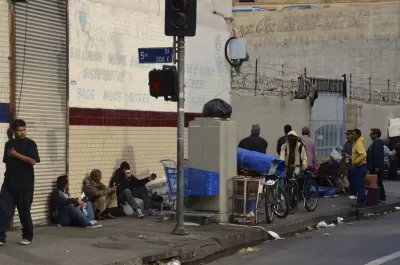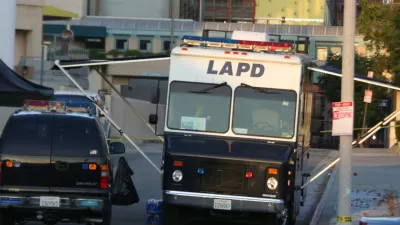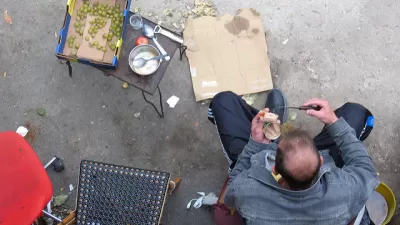As the city considers new ordinances making it easier for police to break up homeless camps, residents say forced displacement is already underway. Police deny an increase in homeless sweeps.

Aid groups for the destitute of Skid Row are concerned about a reported rise in homeless sweeps and property confiscation. "While city officials have been wrestling with new ordinances to make it easier to break up camps — first enacting them in July, then suspending enforcement while they consider modifications — police have been testing strategies for getting homeless people's property off the streets, the groups say."
One homeless man recalled an incident where "two 'officers' — employees of the local business improvement district — [...] pulled out a 'voluntary property release' form. Unsure if the black-shirted officers were police, Gabel said he felt intimidated and signed the form." The men then took away the bike parts he planned to sell.
Spokespeople for the police deny using more aggressive tactics on Skid Row. "LAPD Cmdr. Andy Smith said there has been no increase in homeless sweeps, and arrests for violations that typically target homeless people are down."
"[A police spokesperson] said police were trying to balance the needs of the homeless while ensuring the city is 'habitable.'" Habitability, of course, can easily be a code-word for the gentrification many see as inevitable for the area. In the words of one officer, "People pay a lot now to live here, they expect services from the city. You're kind of stuck in the middle, I know."
FULL STORY: LAPD denies increase in homeless sweeps; skid row advocates say otherwise

Maui's Vacation Rental Debate Turns Ugly
Verbal attacks, misinformation campaigns and fistfights plague a high-stakes debate to convert thousands of vacation rentals into long-term housing.

Planetizen Federal Action Tracker
A weekly monitor of how Trump’s orders and actions are impacting planners and planning in America.

San Francisco Suspends Traffic Calming Amidst Record Deaths
Citing “a challenging fiscal landscape,” the city will cease the program on the heels of 42 traffic deaths, including 24 pedestrians.

Defunct Pittsburgh Power Plant to Become Residential Tower
A decommissioned steam heat plant will be redeveloped into almost 100 affordable housing units.

Trump Prompts Restructuring of Transportation Research Board in “Unprecedented Overreach”
The TRB has eliminated more than half of its committees including those focused on climate, equity, and cities.

Amtrak Rolls Out New Orleans to Alabama “Mardi Gras” Train
The new service will operate morning and evening departures between Mobile and New Orleans.
Urban Design for Planners 1: Software Tools
This six-course series explores essential urban design concepts using open source software and equips planners with the tools they need to participate fully in the urban design process.
Planning for Universal Design
Learn the tools for implementing Universal Design in planning regulations.
Heyer Gruel & Associates PA
JM Goldson LLC
Custer County Colorado
City of Camden Redevelopment Agency
City of Astoria
Transportation Research & Education Center (TREC) at Portland State University
Jefferson Parish Government
Camden Redevelopment Agency
City of Claremont





























